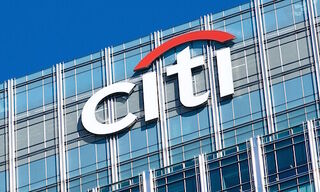They have been outperforming active funds since at least 2001, but somehow no one feels good about it.
The passive versus active investment argument is a fierce one that we are not going to solve here. We also won’t be delving too much into their history.
That is because index-tracking funds have been blamed for practically everything, from creating a market bubble of unheard-of proportions to ruining asset price discovery, as Morningstar writes.
Undue Concentrations
Others maintain they are responsible for undue concentrations in a few large caps. The Magnificent Seven is a prime example, ruining any incentive for entrepreneurs in a free market, capitalist system to get off their haunches and do anything anymore.
No, we won’t be getting into all that. Instead, we offer a recently released infographic by Visual Capitalist to soothe the average private banking client’s soul.
Stiff Arguments
That is because, many, if not most, have a significant proportion of their portfolios in a range of ETFs, and many of the fierce arguments doing the rounds around the world right now can leave a raw, bitter taste, with the more introspective among them asking who is right or not.
The graphic is comforting in that it shows passives have mostly outperformed actives, by very measurable margins, since 2001, at least when it comes to the S&P 500.
Lower Fees
Although we won’t be predicting the future, or whether all this, which has at least the semblance of almost a quarter century’s worth of data (the makings of a secular trend in the minds of most financial industry analysts), we would note a few things.
It has resulted in dramatically lower fees across the board for investments over the last two decades – for everyone including the high net worth.
And the truth of the matter is that the rigid captivity of most private investments, hedge funds, or even the allure of crypto and NFTs, can function as portfolio diversifiers - at best. At that, it is very unlikely that a private banking portfolio will only be made up of alternative investments and the like in the next 5-10 years.
Most Disenfranchised
Moreover, many of the arguments of those most against passives are also those who have been the most disenfranchised – legacy brokers, hedge funds, bankers, and asset managers.
In a world that is waiting practically spellbound in silence for the conclusion of the US presidential elections, that at least is something to think about and consider.




























